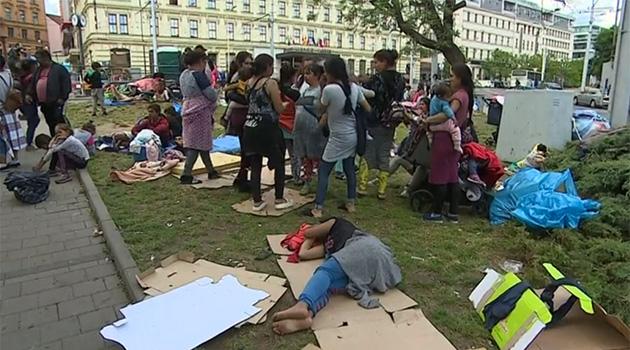Czech Republic's second-largest city moves Romani refugees from Ukraine away from railway station and onto a fenced plot of land with tents

Romani refugees from Ukraine have been moved out of Brno’s main railway station, where they have been living in recent weeks, to a fenced plot of land between Benešova Street and Koliště Street at the instigation of the municipality. The space in front of the railway station where they were originally sleeping has also been fenced off by the city.
On Friday afternoon, firefighters pitched three large-capacity tents on the plot of land at Koliště Street, including drinking water tanks and portable toilets. The tents are now occupied, clothes are being dried on the fencing, and children are running around or riding scooters there.
Laundry has also been hung out to dry on the tents. According to Brno City Hall spokesperson Filip Poňuchálek, about 30 Romani refugees from Ukraine moved into the tents from the railway station on Friday afternoon.
Everything is happening on a voluntary basis and the refugees can leave the facility at any time. Mayor Vaňková admitted previously that if the Roma were to relocate, the city would probably fence off the place where they have been staying in front of the railway station so they do not return to it.
The city spokesperson has alleged that the refugees are Roma from the border between Hungary and Ukraine, and many of them are said to have come to the Czech Republic just to receive the benefit provided to refugees before returning back to Ukraine. The grassy island in front of the railway station between the road and the train tracks where dozens of Roma have been living in recent days has now been fenced off by the city.
The Romani refugees moved voluntarily into the area near Koliště Street. “The city has no leverage to make these people stop coming here, we cannot influence the fact that they are getting benefits because they simply are entitled to them,” Mayor Markéta Vaňková (Civic Democratic Party – ODS) told reporters on Friday.
The mayor stressed that the group of refugees was not stable and that they were coming to Brno, staying a few days and then leaving. According to her, it was not good to have such a situation at the railway station.
